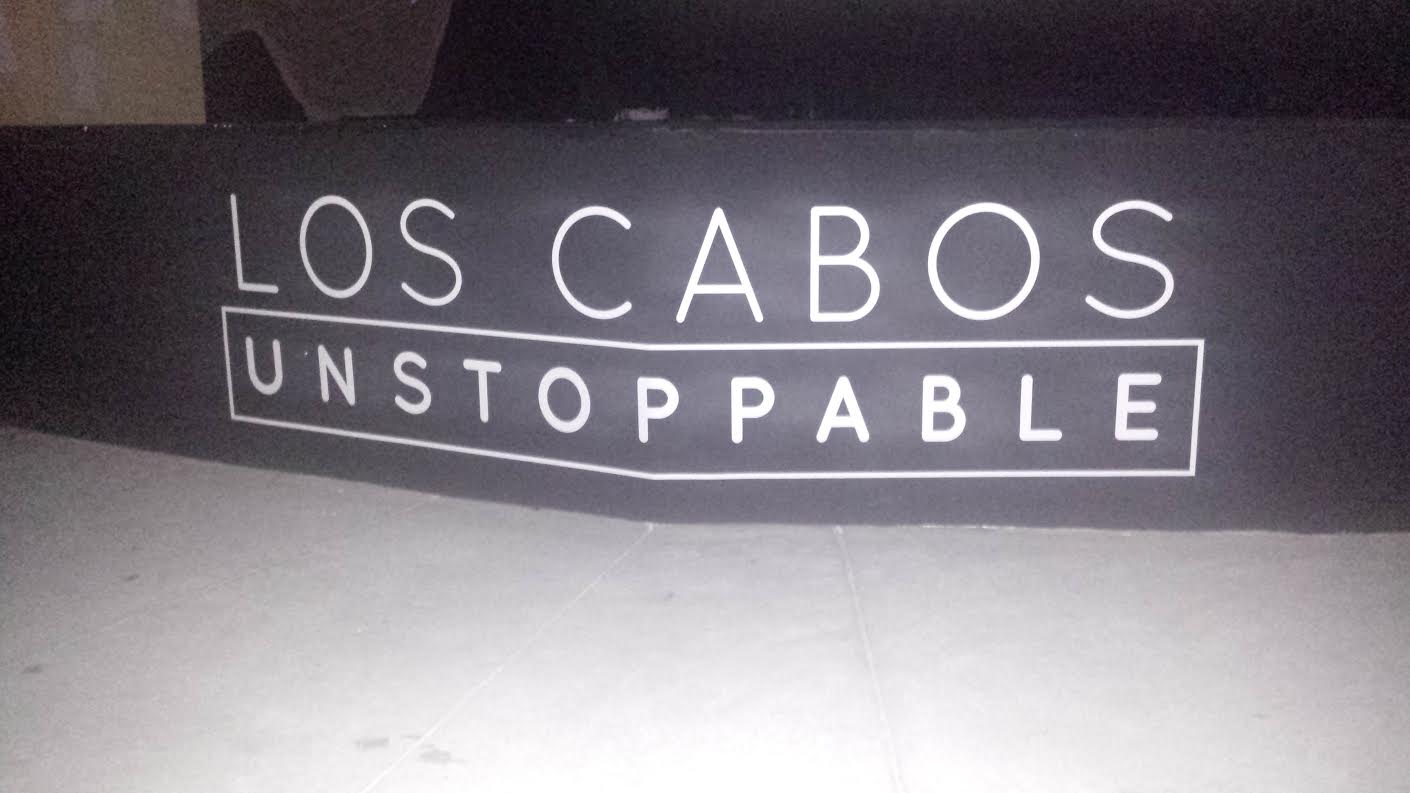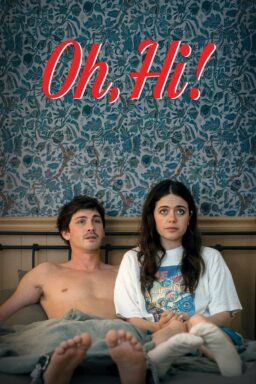“UNSTOPPABLE.” That single adjective, plastered on walls all
over Cabo San Lucas, suggested the determination of a fabled Mexican beach
resort to rally back from a devastating storm that arrived just as its tourist
season approached. It also served a double purpose as a de facto slogan for the
third annual Los Cabos International
Film Festival, which found itself imperiled by the same extreme weather
event.
Before Hurricane Odile plowed into Mexico’s Baja peninsula
in September, the festival seemed on track to build on the solid success of its
first two editions. Co-founded and directed in its first year by Scott and Sean Cross,
founders of the Vail Film Festival in Colorado, the event (called the Baja
International Film Festival for its first two years) was an ambitious
undertaking from the outset. No mere regional fest for a nation that has a
number of good film festivals, it put the emphasis on “international,” with a guest
list that bridged the film cultures of Mexico, the U.S. and Canada, and a
profile that encompassed not just screenings and celebrity appearances but a
multi-national industry conclave.

Impressed by the festival’s stellar launch, the Mexican
government got involved and infused it with resources that promised bigger and
better subsequent editions. Then, on Sept. 14, Odile, one of the most powerful
hurricanes ever to hit Baja, came ashore at Cabo San Lucas packing 125 MPH
winds. The widespread resulting damage put the festival’s third edition very
much in doubt.
After days of damage assessment and rapid-fire
deliberations, the organizers decided to go ahead with the 2014 festival,
despite challenges on many fronts. Held Nov. 12-16, the event’s third edition
proved the wisdom of that choice. Though its guest list was scaled back by a
third, and many of the town’s swankiest beachfront hotels remained out of
commission, this year’s festival, rather than being a mere placeholder, built
impressively on the energy and esprit
of previous editions.
The complement of famous U.S. names, though, was one area
where the hurricane took a toll. In the first two years, the festival hosted an
array of American stars and prominent filmmakers. This year, Hollywood agents
reportedly withheld a number of their clients due to the event’s temporary
uncertainty. But that didn’t deter two American luminaries who could probably
give Odile a run for her money as forces of nature–Reese Witherspoon and Chaz
Ebert.
The two appeared on the festival’s open-air stage during its
opening night ceremonies. Witherspoon was there for the Mexican premiere of her
forthcoming U.S. release “Wild,” which showcases her abilities not only as
actor but also, perhaps even more importantly, as producer. At a press
conference earlier in the day, she explained that she’s intent on depicting
“complex, interesting women” in the films she mounts; to that end, her
production company acquired the rights to two recent books–Gillian Flynn’s
novel “Gone Girl” and Cheryl Strayed’s memoir “Wild: From Lost to Found on the
Pacific Coast Trail.”
Whether or not it matches the box-office punch of “Gone
Girl,” “Wild” is an engrossing, expertly mounted woman-against-nature drama
with Witherspoon as a former drug and sex addict purging her past life by
hiking solo over a thousand miles, from Mexico to Canada, through the wilds of
the Pacific coast. Adroitly directed by Jean-Marc Vallée and scripted by Nick
Hornby, the film features a physically arduous lead role that, not surprisingly,
Witherspoon called the most difficult she’s ever undertaken. But it’s a movie
in which, as both character and filmmaker, she proves, well, unstoppable.

Chaz Ebert took the stage after festival director Alonso
Aguilar-Castilo announced Los Cabos’ special posthumous tribute to Roger Ebert.
Following a selection of clips from Steve James’ acclaimed documentary “Life
Itself,” Chaz accepted the award with remarks that began in Spanish, a gesture
greeted with obvious appreciation by the crowd. In a sense, this festival’s
Roger Ebert event marks a turning point in the extensive career “Life Itself”
has enjoyed since its premiere in January at Sundance: Moving from the U.S. to
foreign countries including Mexico (where it will soon have a theatrical opening),
the film now brings its celebration of one critic’s life to audiences that
rarely encountered his work in print or on television.
Watching the film the next day with a mostly Mexican
audience that seemed engrossed from start to finish, and engaged Chaz in a
spirited Q&A afterwards, it seemed clear why “Life Itself” works so well
for people who didn’t grow up reading and watching Ebert: more than a
nonfiction biopic, it’s a great love story–an evocation of Roger’s love for
movies, for writing, for people, for Chaz and, of course, for life itself. No
wonder the film seems so moving and engaging even to non-English-speakers who
meet Roger for the first time in watching it.
American film culture was also represented by Los Cabos’
closing night film, Richard Linklater’s “Boyhood,” with young stars Ellar
Coltrane and Lorelei Linklater in attendance. The Canadian presence included
Xavier Dolan, whose Cannes Jury Prize-winner “Mommy” was the second of the
festival’s Gala screenings, and two veteran auteurs who received career awards
as well as presenting new films. Denys Arcand introduced his “An Eye for
Beauty,” an elegant drama about a young architect who strays from the marital
straight-and-narrow. And Atom Egoyan was given his award by Rosario Dawson, who
stars along with Ryan Reynolds in his upcoming “The Captive,” a drama centered
on the mystery of a child’s kidnapping.

The festival’s one Mexican recipient of a career award,
writer-director Guillermo Arriaga, was on hand with “Words with Gods,” a movie
in which he and eight other directors contributed short works dealing with
religion. Like most omnibus films, it’s a mixed bag. For my money, the best
episodes are Arriaga’s dreamily apocalyptic vision of the world inundated by a
downpour of blood; Emir Kusturica’s quirky evocation of Eastern Orthodox
monasticism (the Serbian filmmaker was also a festival guest); Iranian-Kurdish
director Bahman Ghobadi’s witty and surreal exploration of Islam; and Spaniard
Alex de la Iglesias’ truly hilarious conflation of gangster-film mayhem and the
Catholic confessional.
Besides Hurricane Odile, the festival opened under the
shadow of another, even more tragic event, the recent kidnapping and apparent
murder of 43 college students in the state of Guerrero, a crime reportedly
involving corrupt city officials and a drug cartel. Having visited Mexico
regularly over the past 17 years, this writer has never seen anything shake the
Mexican public like this crime, an apparent tipping point that’s unleashed a
continuing storm of protests aimed primarily at the national government.
At Los Cabos’ opening night, dozens of protestors brandished
signs and chanted slogans as guests entered the festival’s principal venue, the
Pabillón Cultural. The protests were not against the festival or its
participants, I was later told by filmmaker Fernando Frias, but rather a public
occasion used for venting the ongoing rage against the government. And inside
the Pabillón there were vivid acknowledgements of that anger in both the
opening and closing ceremonies, when filmmakers led the crowds in chanting the
numbers one to forty-three—a sobering display of mournful solidarity.
The students who disappeared in Guerrero were participating
in collegiate political protest, long a tradition in Mexico. It’s a practice
that’s also at the heart of the festival competition’s best film, which took
home its grand prize on closing night.

Like “Life Itself” and “Boyhood,” the Mexican feature
“Güeros” has been on the festival circuit most of the year. Unlike them, it
didn’t start out with the advantage of a director with a well-established name.
But Alonso Ruizpalacios’ debut feature has done well for itself nonetheless,
picking up prizes in festivals including Berlin, Jerusalem, Lima, San Sebastián
and, now, Los Cabos.
Set in 1999, the black and white film starts with a
troublesome teen in Veracruz being shipped off to stay for a spell with his
brother, who’s in university in Mexico City. Bro turns out to be a consummate
collegiate slacker, living in a high-rise dorm, where he steals electricity
from a neighbor and mostly just hangs out with his equally disengaged roommate.
Soon after the kid arrives, the three set off in a very dubious car in search
of an obscure musician whom the brothers’ dad listened to back in the day, a
journey that takes them through the fringes of an ongoing student protest, and
across diverse corners of Mexico City’s dense sprawl.
Many films that draw comparisons to the French New Wave feel
self-conscious, retrospective and imitative. “Güeros” is the rare one that
comes off as entirely fresh and original. Its deadpan road-movie comedy, which
also brings to mind films by Wim Wenders and Jim Jarmusch, is anchored by solid
performances by its young cast, and cinematographer Damian Garcia’s supple,
nuanced camerawork strikes me as the best I’ve seen in any film this year.
With its win at Los Cabos capping a remarkable year of
captivating festival audiences, “Güeros” deserves to make the leap into
theaters internationally. Happily that will happen in the U.S.: it will be
released in 2015 by Kino Lorber, a distributor that keeps proving its
outstanding taste in international cinema.












